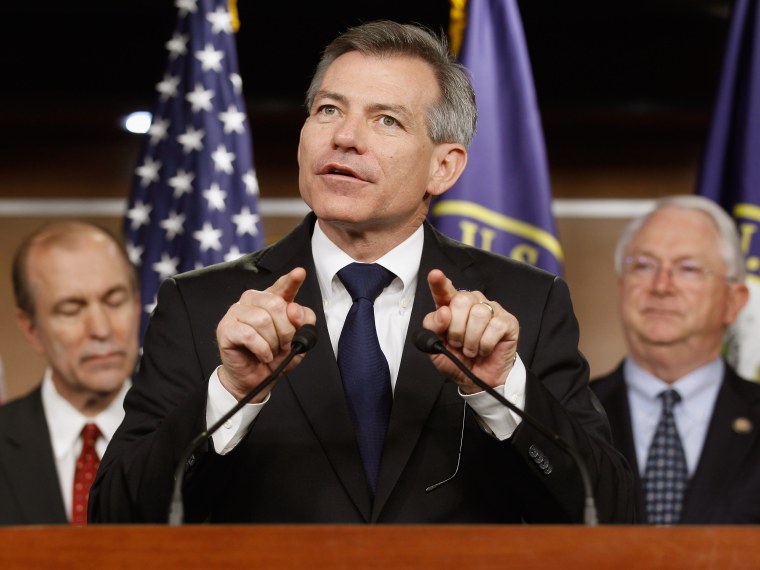Most of the attention on Capitol Hill this week has been focused on Keystone, the NSA, and the coordinated freak-out over immigration policy, but House Republicans devoted time yesterday to an
entirely different concern. They call it "secret science."
The House on Wednesday passed legislation to prevent the Environmental Protection Agency from issuing new regulations unless it provides the scientific data to justify them. Passage of the measure, H.R. 4012, fell largely along party lines with a vote of 237-190. The bill is part of the House GOP's package of legislation on the floor this week to limit the EPA's regulatory powers.
House Science Committee Chairman Lamar Smith (R-Texas), a fierce EPA opponent, argued, "Costly environmental regulations should only be based on data that is available to independent scientists and the public." Rep. David Schweikert (R-Ariz.), the chief sponsor of the legislation, added, "If you're going to make public policy, do it by public data."
At first blush, it sounds pretty reasonable, doesn't it? Indeed, the name of the bill itself, the "Secret Science Reform Act," hardly comes across as some radical, anti-EPA proposal. The text itself simply requires the EPA to issue rules based on evidence available "in a manner that is sufficient for independent analysis and substantial reproduction of research results."
If you didn't know better, the proposal may even sound dull. That is, until one takes a closer look and understands what Republicans are up to.
First, the bill's GOP sponsors hope to block the Environmental Protection Agency from using top-notch medical research before acting to help the public. The Union of Concerned Scientists' Dr. Andrew Rosenberg
explained, "Some of the best real-world public health research, which relies on patient data like hospital admissions, would be excluded from consideration because personal data could not, and should not, be made public. Demanding public release of full raw data the agency cannot legally disclose is simply a way to accuse the agency of hiding something when it has nothing to hide."
Second, as Christopher Flavelle
explained, the legislation is intended to vastly increase the cost of scientific research, limiting the amount of work the EPA would be able to do in any given year.
There's also the small matter of fixing a problem that doesn't exist. Flavelle
added, "I asked a spokeswoman for Representative David Schweikert, the bill's sponsor, for examples of outside groups that have tried replicating the results of studies on which EPA has based some its regulations, but were unable because of restrictions on that data. I made the same request of a spokeswoman for Smith. Neither provided any."
In what might be the most ridiculous aspect of the whole thing, the bill forbids scientific experts from participating in "advisory activities" that either directly or indirectly involve their own work. In case that wasn't clear: experts would be forbidden from sharing their expertise in their own research -- the bizarre assumption, apparently, being that having conducted peer-reviewed studies on a topic would constitute a conflict of interest. "In other words," wrote Union of Concerned Scientists director Andrew A. Rosenberg in an editorial for RollCall, "academic scientists who know the most about a subject can't weigh in, but experts paid by corporations who want to block regulations can."
It's important to note that neither of these bills will pass Congress in the lame-duck session -- the Republican-led House approved them, but they'll be ignored by the Democratic-run Senate.
